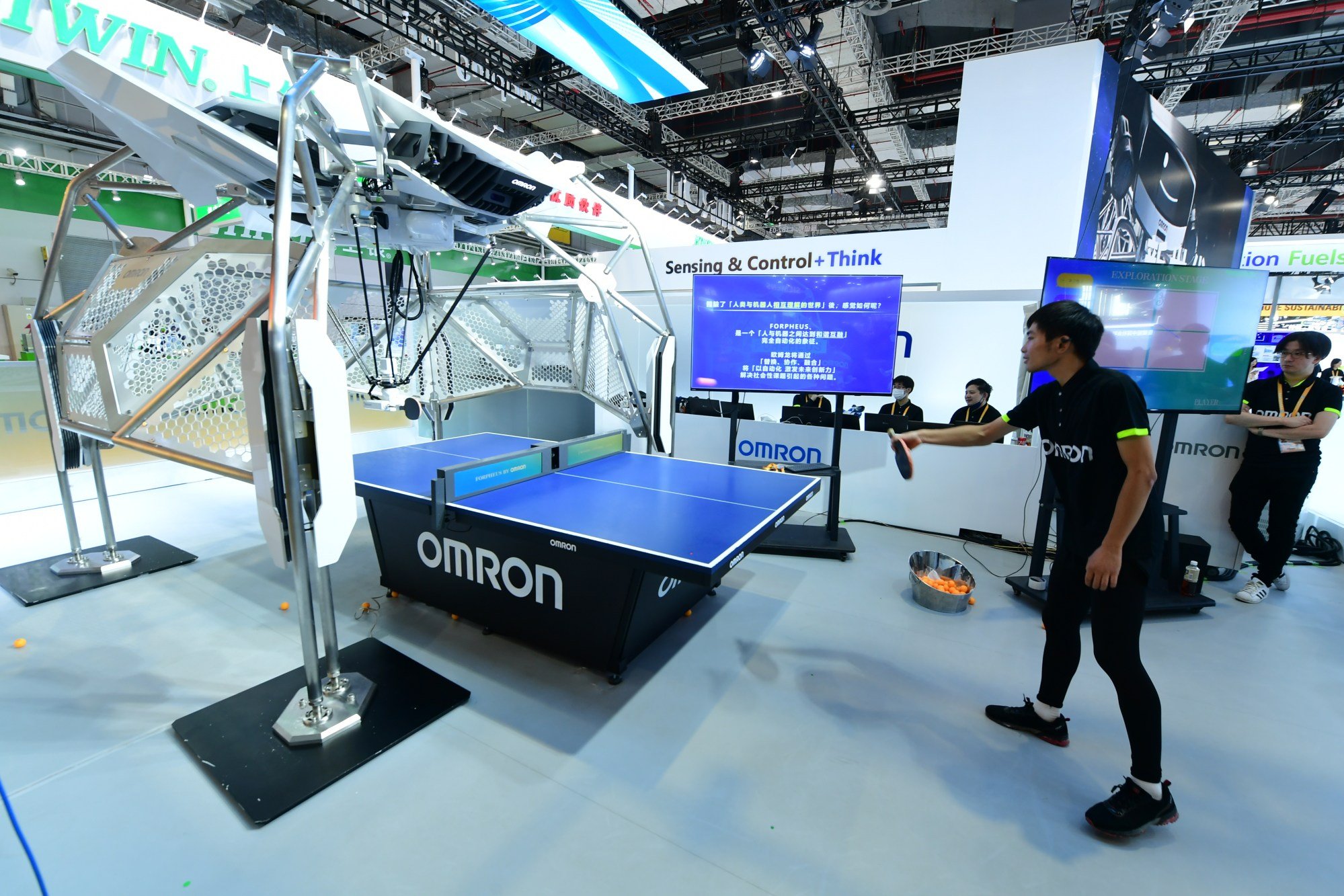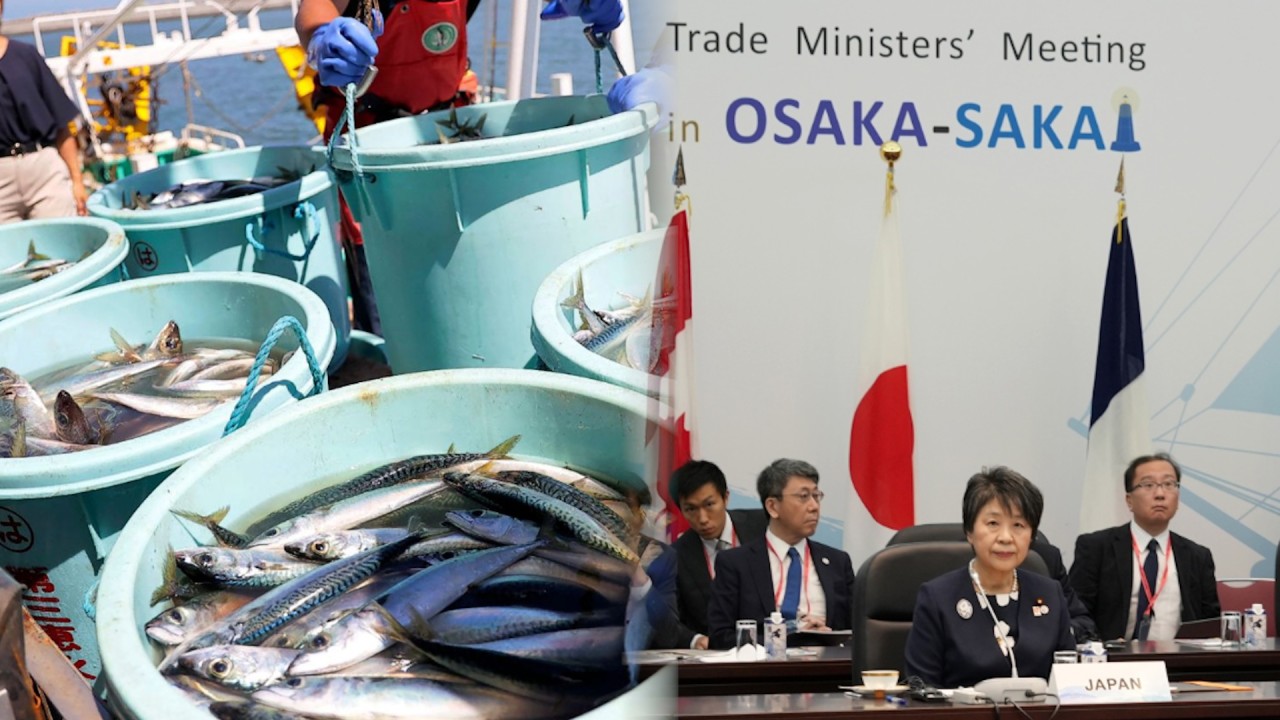Japanese firms still betting on China despite tensions, see leaving ripe market as nonsensical
[ad_1]
Beijing’s clear interest in boosting the confidence of foreign companies amid the economy’s uneven post-Covid recovery and volatile geopolitical changes appeared to be welcomed by Japan, as 350 of its exhibitors were in attendance at this year’s CIIE.
But trade and investment between the two huge economies has slackened. Total trade slumped by 12.2 per cent year on year to US$262.79 billion in the first 10 months of 2023, according to China customs data.
The drop is more than double the 6 per cent contraction in China’s overall imports and exports in the same period.
Japan’s exports to China, meanwhile, contracted for the 11th straight month in October, dipping by 4 per cent compared to the year before. Japan has also not been China’s largest source of foreign direct investment since at least 2021.

A September flash survey of 1,410 businesses by the Japanese Chamber of Commerce and Industry in China found a quarter said they would not be investing in China this year, and another 22 per cent said they would slow their expansion.
Among major reasons cited, 56 per cent of manufacturers and 72 per cent of non-manufacturers pointed to the “underlying international situation and environment”.
At CIIE, though, Japanese exhibitors still showed eagerness to sail into China’s market despite the shifting geostrategic winds. Most chose to avoid talking about politics.
Yang Yeqing, a marketing chief with industrial robot manufacturer Nachi-Fujikoshi, said he was proud to be a long-standing supplier of cutting-edge devices for Huawei Technologies, ZTE and other Chinese tech giants that have become lightning rods for Western sanctions.
There’s no bilateral politics or geopolitics at play in our business because our technologies and gear, very advanced and sophisticated, are for civilian use
“We have been shipping equipment to Huawei and ZTE for more than a decade. Sales in China have surpassed the United States, [making it] the largest foreign market for Nachi,” Yang said.
He insisted the tech stand-off between China and the US had “no impact,” and that Tokyo had not intervened in Nachi’s dealings with Chinese partners and clients.
“There’s no bilateral politics or geopolitics at play in our business because our technologies and gear, very advanced and sophisticated, are for civilian use,” Yang said.
“It’s not about chips or any sensitive elements that originate from the US.”
He did admit to some challenges, though, particularly the “formidable” competition from companies within China and rising costs. But leaving this huge market, Yang added, “would make no sense”.
No companies, regardless of their nationality, want restrictions on what they can buy or sell
China contributed 20 per cent of Nachi’s total sales in 2022, so the firm would face collateral damage if the sale of advanced robots, numerical control equipment or machine tools became a new political flashpoint.
Japanese companies are fully aware of the intensifying bilateral rivalry and shifts in geopolitics, and hi-tech outfits with sizeable operations in China have “become more cautious”, said Tomoo Marukawa, professor of economics and China studies at the University of Tokyo.
“Of course, no companies, regardless of their nationality, want restrictions on what they can buy or sell.”
Many Japanese companies are still giving reassurances about remaining, though they are prodding Beijing to do more to make them feel welcome, while devising their own strategies to navigate risks.
A marketing manager with Muji, a popular Japanese consumer brand with a heavy China footprint, admitted sales may take a hit if bilateral ties sour further.
But the company, she added, would showcase more Chinese elements in its products and ads to compensate.
The manager said she ultimately remained optimistic about China’s post-Covid spending spree.
“Japanese media has been spreading pessimistic views about the Chinese economy for years,” said another Japanese executive attending CIIE who declined to be named due to the sensitivity of the topic. “Many Japanese companies do not [agree] and still choose to bet on China.”
Tokyo University’s Marukawa said Japanese companies in China should tread more carefully when it comes to political or historical issues, like avoiding launching a new product on certain sensitive days or being associated with territorial issues.
He also said with the rise of Chinese firms, it is natural that some Japanese companies would lose out and in some cases withdraw, as seen in the auto sector, and these decisions should be viewed as rooted in business rather than a result of political trends.
[ad_2]
Source link



 Bonuses for new players
Bonuses for new players